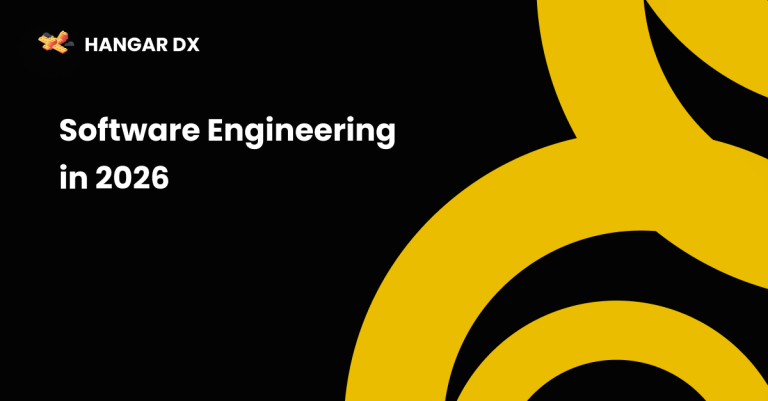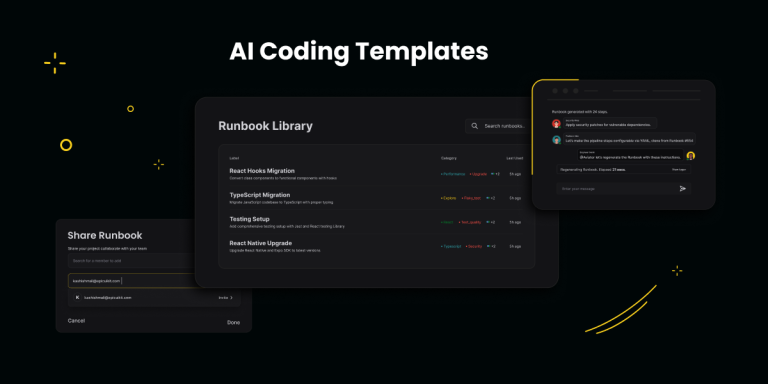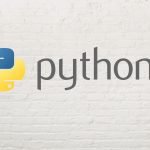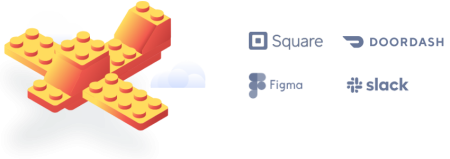Beyond Claude Code: Multiplayer and Standardized AI Coding
Runbooks doesn’t replace Claude Code; it transforms AI from an individual tool into a multiplayer development platform through spec-driven development.
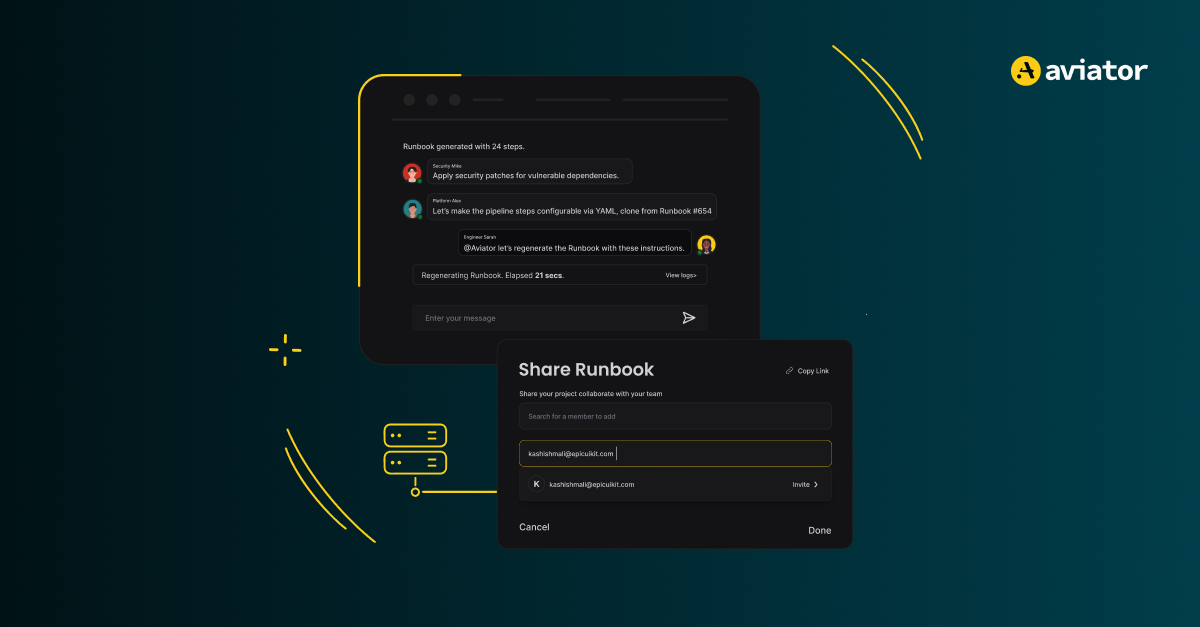
Here’s what AI coding looks like in engineering orgs now: five developers work on a similar feature using AI tools. Each one opens Claude Code, describes their task and what they want to achieve, and after some back-and-forth, they’re done.
AI tools revolutionized personal productivity, but they’ve also created a new kind of technical debt: fragmented AI-driven development.
Each developer works in isolation with their own AI conversations, receiving different solutions to similar problems. When AI coding sessions end, the reasoning behind the decisions disappears. Junior developers can’t learn from how senior developers use AI. Best practices discovered in one conversation vanish into the void.
The Fragmented AI Problem
- Individual-focused: Each developer works in isolation with their own AI conversations
- Context-limited: No shared understanding across team members
- Ephemeral: Conversations and solutions disappear when the browser closes
- Inconsistent: Each team member gets different approaches to the same problem
- Knowledge-losing: Implementation decisions and rationale lost between sessions
Result: Fragmented AI experiences that don’t scale to team workflows or organizational learning.
Aviator Runbooks: Multiplayer and Spec-Driven AI Coding
Instead of five developers getting five different AI suggestions, those five developers join one shared session, collaborate with AI to establish the best approach, then apply it consistently across all features.
Runbooks transforms AI from an individual tool into a collaborative development platform through two unique capabilities:
1. Spec-Driven Development: From Ad-Hoc Prompts to Systematic Workflows
Spec-driven development is the practice of writing specifications before writing code or asking an AI tool to write code.
Instead of just trying your luck with prompts and then prompting for fixes, Runbooks workflow starts with connecting relevant repositories to fetch context and a planning session where engineers work with agents to plan out work.
The agents will build a Runbook after they fetch the code from GitHub, inspect the query, analyze the code base to build the context, understand dependencies, and ask clarifying questions.
Runbooks offer:
- Reusable templates: Proven workflows for common tasks
- Executable specifications: Markdown-based specs that become actionable steps
- Standardized processes: Template-driven approach ensures consistency
- Institutional knowledge: Best practices captured as versioned templates
- Step-by-step execution: Automated progress tracking with clear milestones
Templates are a great way to share and run Runbooks with prebuilt context. We offer prebuilt templates for some common coding task patterns, such as code migration, refactoring, and maintenance work.
2. Multiplayer: From Solo to Collaborative
Any active Runbook with a chat session can be shared with other users within the engineering organization to collaborate. This expands the chat experience, inviting other developers to provide feedback and make edits.
Engineers can build on top of someone else’s Runbook, transfer context across repositories or code paths, draft their own specs and get feedback, or bring stakeholders and coding agents together in a single, structured session.
Runbooks turn AI coding multiplayer:
- Shared sessions: Multiple developers collaborate in real-time with AI
- Live collaboration: Teams see AI reasoning and contribute together
- Collective problem-solving: Senior developers guide juniors through AI sessions
- Persistent context: All session history preserved and accessible
- Aligned implementation: Shared AI guidance ensures consistency
- Agents that learn: Every execution generates context that is used for future tasks, improving accuracy the more we use
The choice isn’t between AI or no AI. It’s between individual AI productivity and team AI intelligence.
Transform scattered processes into reliable, collaborative Runbooks.


